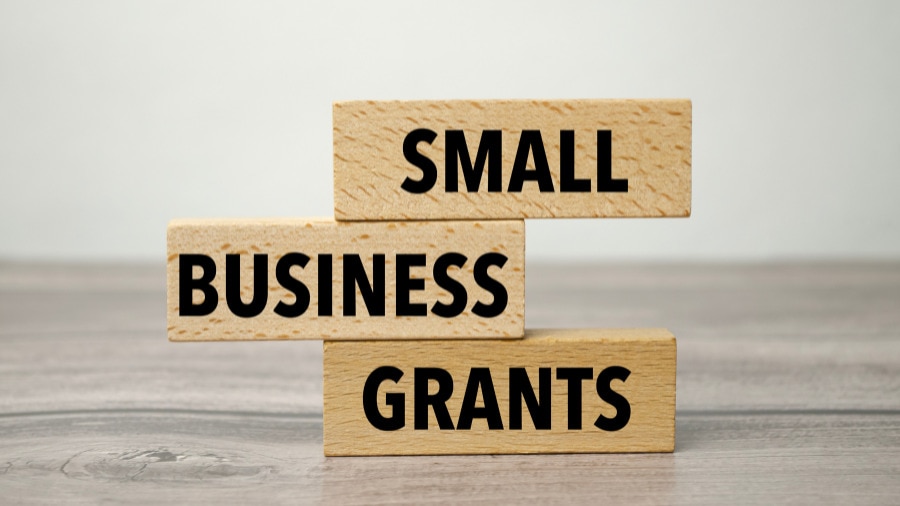Adequate funding is an important factor in the success of any nonprofit organization, but money from charitable donations and fundraisers isn’t always enough to cover your operational costs. This is where grants come in. Canadian organizations offer a wide range of funding opportunities for nonprofit organizations. Learning how to create a winning grant proposal or application can set your nonprofit apart and help you help your community.

How to Get Grants For Your Canadian Nonprofit
Where to Find Grants
Sometimes the biggest hurdle in finding funding for your nonprofit is just knowing where to look. You can also opt to streamline your search process by using a third-party service. Funding Portal provides a comprehensive database of Canadian funding opportunities, including government and private sector funding. The website offers a free search tool that matches your company with applicable funding opportunities based on your location, sector, size, annual income, and other custom factors. Funding Portal also offers paid memberships, reports and assistance services for businesses and nonprofits that want professional guidance toward achieving their funding goals. The Government of Canada website offers a database of current funding opportunities at the federal level. Each of these funds is aimed to further a specific goal. Some are applicable to nonprofit organizations, while some are best suited to commercial businesses. Read the short descriptions to determine if your nonprofit might benefit from one of these opportunities. There are also plenty of free databases like Charity Village that connect nonprofit operators to Canadian funding opportunities.
Writing a Grant Proposal
Nonprofit grant writing is time-consuming. You can’t just write a single, general grant proposal and send it out to every organization you’re interested in. If you want to stand out, you’ll need to create a detailed, tailored proposal for each grant you wish to apply for. In many cases, this means you’re going to be paying someone to do your grant writing. This might be an employee or an independent contractor. Hiring an independent contractor might be ideal for writing a grant if you’re only applying for one or two, or if you don’t have enough employees to task your in-house staff with the job of grant writing. An independent contractor may charge you a slightly higher rate than what you’d normally pay a staff member, but the added cost is often worthwhile for the benefit of specialized expertise and experience. If you opt to write the grants yourself or have a staff member do the job, it’s probably worthwhile to invest in some training on how to write effective grant proposals. Numerous post-secondary institutions throughout Canada offer part-time or even single-session courses in grant writing, proposal writing, and technical writing. You’ll probably have to invest in tuition fees, but the skills you learn may be beneficial to your nonprofit for years to come.
Best Practices
You can’t receive all of your funding from grants. Most Canadian government grants come with stipulations regarding how you can and can’t use them. In many cases, this means that the grant money your nonprofit receives can legally only count for a percentage of your total funding. Some government tax benefits will be affected if your nonprofit is using grant money to fund its activities. For example, if your company is located in Ontario and uses a government grant to help with co-op work placement, the money you spend from that grant is not eligible for Ontario’s Co-Operative Education Tax Credit. For these reasons, you should create a detailed and diverse funding plan for your nonprofit prior to searching for grants. Keeping detailed records of where your funding has come from thus far can also help you determine what goals are realistic for your nonprofit. This knowledge, in turn, fosters more persuasive and fact-based proposal writing. Most grant applicants don’t get the funding that they apply for. Don’t be discouraged when your grant writing doesn’t win you that money on your first, second, or even 10th application. Take into account that there are numerous other nonprofits vying for the same grants. A realistic nonprofit budget should account for some hours spent writing grant proposals that never pay off. Each grant has a deadline for submission, and many have multiple deadlines for the submission of separate materials throughout a given time period. Be careful to review all the standards and deadlines for each grant before applying to avoid a rejection for an incomplete or ineligible application.
References & Resources
- fundingportal.com
- canada.pch.gc.ca
- charityvillage.com
- nonprofithub.org
- fin.gov.on.ca


